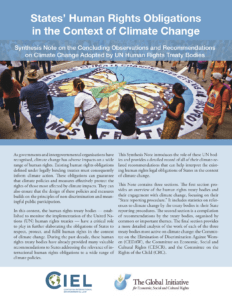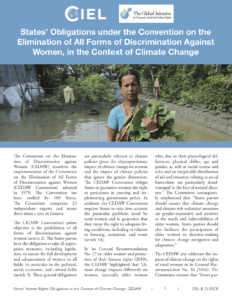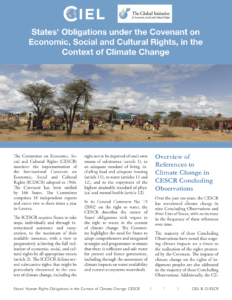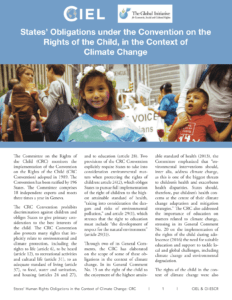
As governments and intergovernmental organizations have recognized, climate change has adverse impacts on a wide range of human rights. Existing human rights obligations defined under legally binding treaties must consequently inform climate action. These obligations require that climate policies and measures effectively protect the rights of those most affected by climate impacts. They can also ensure that the design of these policies and measures integrates the principles of non-discrimination and meaningful public participation.
In this context, the human rights treaty bodies — established to monitor the implementation of the United Nations (UN) human rights treaties — have a critical role to play in further elaborating the existing legal obligations of States to respect, protect, and fulfill human rights in the context of climate change.
During the past decade, these human rights treaty bodies have already provided many valuable recommendations to States underlining the relevance of international human rights obligations to a wide range of climate, energy, and disaster risk reduction policies.
Authored by the Center for International Environmental Law (CIEL) and the Global Initiative for Economic, Social and Cultural Rights, this Synthesis Note introduces the role of these UN bodies and provides a detailed record of all of their climate-related recommendations.
Focused Notes available below provide a more specific summary and analysis of the work of three treaty bodies with respect to States’ human rights obligations in the context of climate change.



